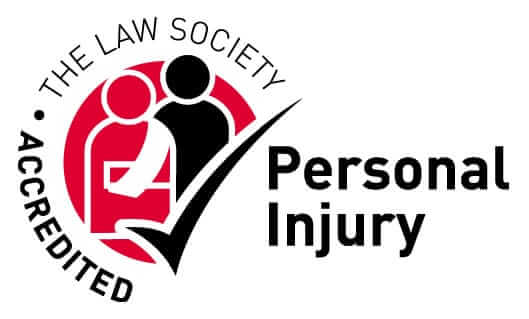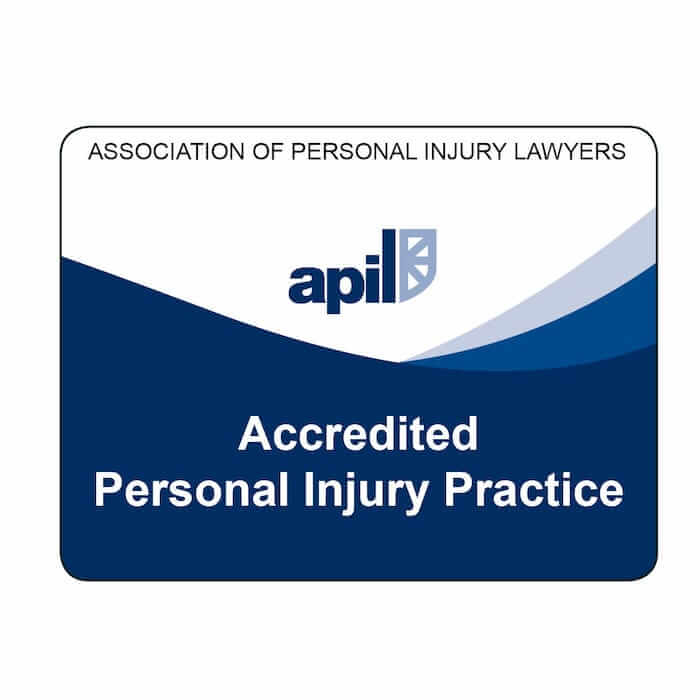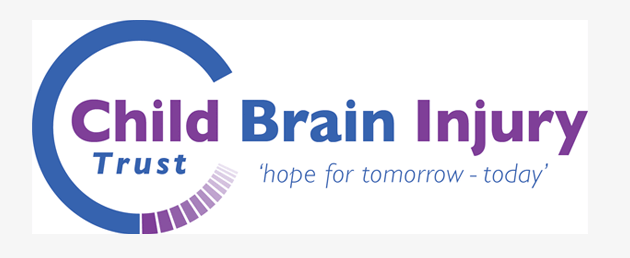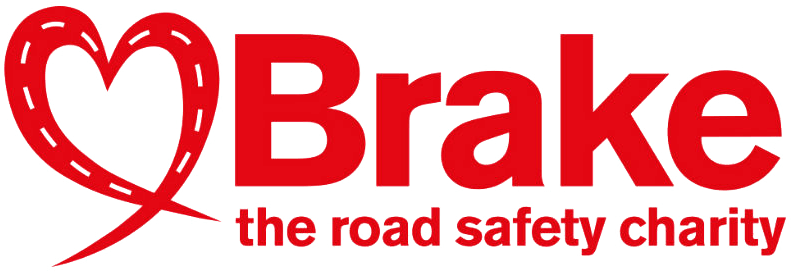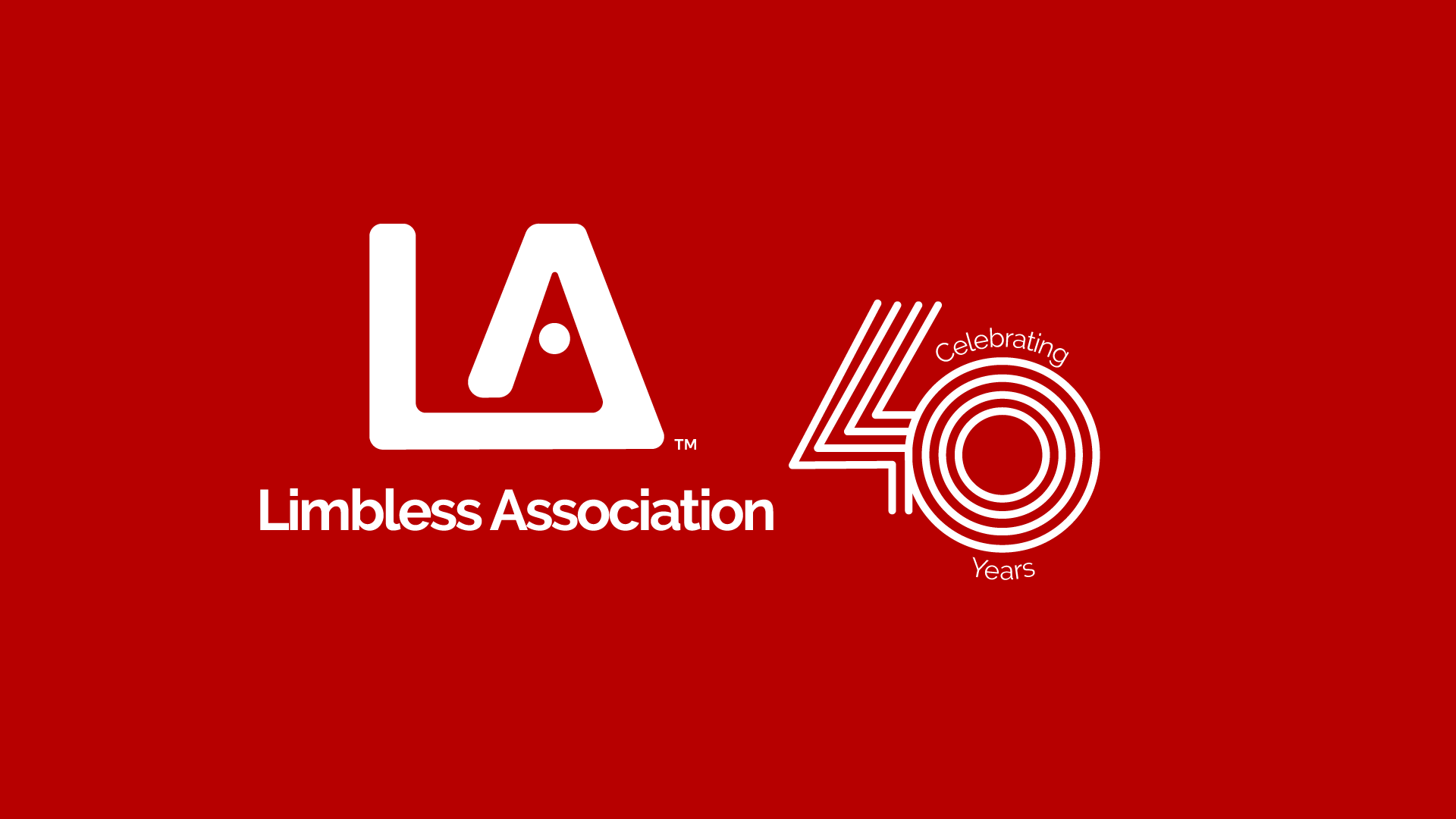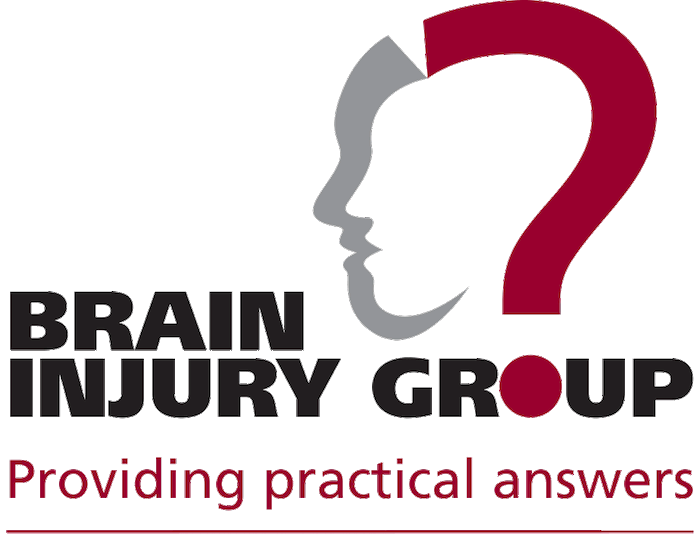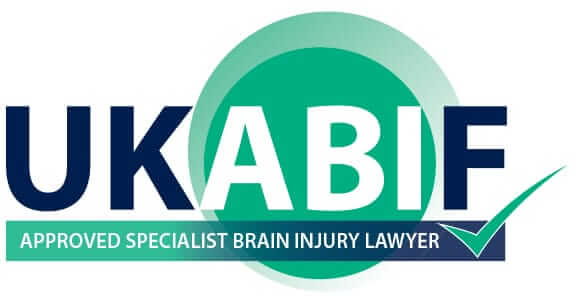Workplace Injury Compensation Claims Solicitors
If you’ve been injured in an accident at work, it can take a huge toll on your life. Depending on the severity of your injuries, accidents can lead to you not being able to work and leave you substantially out of pocket. Knowing what you are entitled to claim can also be a challenge.
If you have suffered an injury at work in the last three years and can prove it wasn’t your fault, you may be able to make a claim for accident at work compensation. At Hodge Jones & Allen, we’re here to help. Our expert accident at work solicitors have the knowledge and experience to help you take your claim forwards.
We understand that an injury which means you’re not able to work for a period of time can be physically and financially challenging and stressful for you and your family, so get in touch today for a confidential, no-obligation chat to find out how we can help you with your accident at work claim.
Call us today on 0330 822 3451 or request a call back.

“A very impressive claimant Personal Injury practice. From my experience of them, the team are very experienced, knowledgeable and highly professional.” “Excellent understanding of a claimant’s needs when running a case. Good strength in depth.” – Legal 500, 2025
 Our Personal Injury team has been ranked in the Chambers & Partners 2025 legal directory. The team was praised for being “knowledgeable, experienced and responsive to queries.”
Our Personal Injury team has been ranked in the Chambers & Partners 2025 legal directory. The team was praised for being “knowledgeable, experienced and responsive to queries.”
we can help.
0330 822 3451Client story: Maintenance technician suffers a traumatic incident in supermarket yard, resulting in loss of eyesight in his right eye.

On the day of his injury, Milos was working with others taking wooden crates apart, to clear a build-up of rubbish in the yard. His life, in those few minutes, turned upside down.
Milos was using a crowbar to pull the crates apart but was not provided with any protective googles even though a risk assessment of the task, had noted that googles were required. Whilst easing the crate apart, the crowbar slipped and flew towards his head, hitting Milos on his forehead and scraping down and across his eye. His right eye was crushed by the force of the crowbar and, despite the efforts of the expert medical professionals, the injury has left Milos permanently blind in his eye. After the accident, Milos also suffered severe headaches, flashbacks of the incident and depression.
When Milos decided to pursue a personal injury claim, he had been encouraged by others to do so. Friends, work colleagues and family members wanted Milos to get justice and receive the damages he deserved to help rebuild his life, and support the ongoing adaption of his lifestyle to deal with significant reduced sight.
Immediately after his injury, Milos spent over 9 months indoors. He slept a great deal during the day and remained awake at night. His injured eye was very sensitive to light. He had to wait months for eye surgery too, as doctors needed the eye to settle and recover as much as possible from the traumatic blow.
Milos also needed surgery to repair the cut sustained across his eye.
When Milos spoke with and met Anne Sanders, his HJA personal injury lawyer he immediately felt at ease as, he was able to receive understandable and clear advice. “I asked Anne to explain and simplify matters for me and together I gained the confidence to take professional counselling advice to help me through my depression and to allow me to talk openly about the impact of my injury and my feelings.” “My therapist obviously cared about what had happened to me and once I accepted I needed help, I made progress and thankfully started to look forward.”
After much treatment and rehabilitation Milos is in a good place now and is back working as a maintenance technician.
Milos gives good advice to others about taking on any job – “Before you start, step back and think about the particular task and how you plan to tackle it – is it safe? It might be outside, inside or working at a height – always think first and assess. My story shows that it only takes seconds to change your life!”
Anne Sanders, Milos’ lawyer, described her client as “An inspiration and a determined individual who has overcome a great trauma and change in his life. Following his traumatic injury, Milos has had to undergo delicate surgery and an extremely long recovery period, before finding out the lasting impact on his sight. He is a wonderful person who has shown a great strength of spirit and determination to work through some hugely challenging times and come out the other side. I am delighted Milos is able to now face the future with increased positivity.”
Can I make an accident at work claim?
If you’ve suffered from an injury at work within the last three years and you believe it wasn’t your fault, then you may be able to make an accident at work claim.
Of course, genuine accidents at work do happen – indeed, it’s virtually impossible to keep any workplace 100% accident-free. But many accidents in the workplace occur because of unsafe working practices, whether it be failure of management to follow health and safety protocols, poorly maintained or faulty equipment or anything else. If your accident falls into the category of negligence on someone else’s part, then you deserve to be compensated for the injuries you’ve received and the debilitating impact on your life.
Our team of accident at work solicitors have decades of experience in not only helping people get the accident at work compensation they deserve, but also aiding with rehabilitation and returning to the workforce with confidence.
If you aren’t sure where to start with a potential accident at work claim, your first port of call should be to speak to us. We’ll get a detailed understanding of the accident and injury in question and will advise you on the next best steps and whether or not to pursue a claim.
What type of injuries can I claim for?
Injuries from accidents at work can take many forms. Below, we’ve listed some of the most common injuries you can claim for. If your injury is not listed, give us a call to discuss how we can help.
- Injuries from manual handling, lifting or carrying
- Unsafe working practices and procedures
- Failing to comply with health and safety regulations and guidance
- Injuries caused by the lack of provision of suitable protective equipment
- Exposure to toxic chemicals and substances
- Being hit by a moving object – including vehicles or cranes
- Accidents involving machinery – including dangerous machinery, defective and poorly maintained equipment
- A fall from a height
- Being hit by something falling from height
- Trips and slips
- Injuries caused by the careless actions of a colleague – including due to insufficient or improper training
- Violence in the workplace
What duty of care does my employer have?
Your employer has a general duty to take reasonable steps to ensure that employees’ health and safety at work are protected.
This includes maintaining a safe working environment, ensuring that risk assessments are carried out, and providing proper and adequate training to employees.
For example, employers should be undertaking regular inspections to ensure workspaces are free from hazards and providing employees with training to ensure that they are able to undertake all tasks safely.
Of course, employees can act independently and employers might not be liable unless they are responsible for their carelessness, such as by not providing proper training or not carrying out a proper risk assessment of the tasks that they ask you to undertake.
In addition to this, there are also certain statutory duties that are imposed on employers by law. For example, in relation to working at height, employers must abide by the Working at Height Regulations 2005 which ensure that work at height is properly planned, employees involved are competent and properly trained and that all equipment is properly inspected and maintained.
Guidance is also provided by the Health & Safety Executive (HSE) which employers are expected to take into account.
If your employer fails to meet their duty of care and you are injured at work, then they may be liable to pay compensation for your injuries.
Reporting accidents at work – can I be sacked for having an accident at work?
If you make a claim against your employer for an injury sustained in an accident at work, it’s important to remember that this does not affect your employment rights. If you’re treated unfairly or lose your job and you believe this to be as a result of your compensation claim, you should speak to an employment lawyer as soon as possible. Time limits on bringing such claims in employment law are short, so make sure you act as soon as you can.
Bringing an accident at work claim to your employer can understandably carry with it an awful lot of stress, particularly if you’re still employed by the business. Our role as specialist accident at work solicitors is to lift that weight of responsibility from you and give you absolute confidence in your position. While we take care of the complexities of your case, we can also offer assistance with your recovery and return to work in a comfortable and fair environment.
"WITHOUT YOUR EFFORTS ON MY BEHALF I WOULD HAVE SECURED NO SATISFACTION WHATSOEVER."
How much will it cost me to make an accident at work claim?
Our accident at work procedure works on a ‘no win, no fee’ basis, otherwise known as a Conditional Fee Agreement. In simple terms, that means you won’t pay anything for our services unless your claim is successful.
If your claim is successful, our success fee, your insurance premium for the claim (which protects you financially in the instance that your case is unsuccessful), and some basic charges will be deducted from your compensation amount. We’ll always aim to keep any deductions outside of our pre-agreed success fee to the absolute minimum, so you can receive the largest compensation amount possible.
For an estimate of how much you could claim for your injury, please see our personal injury compensation calculator.
"Hodge Jones & Allen has been fantastic processing and settling my injury claim. My solicitor has been excellent throughout my claim process, being exceptionally helpful, prompt and professional. Everyone else I have dealt with on the team has been equally helpful and friendly."
How do you make a personal injury claim following an accident at work?
If you are looking to make a claim as a result of injury caused by an accident at work, it’s important to follow the proper steps. We advise the following accident at work procedure:
Seeking medical attention
Get immediate medical help from your GP or a hospital if you suffer an injury due to an accident at work. Make sure your injuries and the circumstances are properly documented so you have a record of how your injuries occurred.
Record the accident
Your company should have a log to track any accidents and injuries. It’s important to make sure this is filled out as soon as possible with all the details of your accident. If your employer doesn’t have such a log, report it to your line manager as soon as possible.
Seek legal assistance
Speak to one of our specialist accident at work solicitors who will advise you on the next steps, including how to pursue a case and how much compensation you could potentially claim.
What duty of care does my employer have?
Your employer has a general duty to take reasonable steps to ensure that employee’s health and safety at work are protected.
This includes maintaining a safe working environment, ensuring that risk assessments are carried out, and providing proper and adequate training to employees.
For example, employers should be undertaking regular inspections to ensure workspaces are free from hazards and providing employees with training to ensure that they are able to undertake all tasks safely.
Of course, employees can act independently, and employers might not be liable unless they are responsible for their carelessness, such as by not providing proper training or not carrying out a proper risk assessment of the tasks that they ask you to undertake.
In addition to this, there are also certain statutory duties that are imposed on employers by law. For example, in relation to working at height employers must abide by the Working at Height Regulations 2005 which ensure that work at height is properly planned, employees involved are competent and properly trained and that all equipment is properly inspected and maintained.
Guidance is also provided by the Health & Safety Executive (HSE) which employers are expected to take into account.
If your employer fails to meet their duty of care and you are injured at work, then they may be liable to pay compensation for your injuries
How long do I have to make a personal injury claim?
The time limit for making a claim following an accident at work is usually three years from the date of the injury or from the date you became aware that you have suffered an injury.
In the instance of occupational illnesses or diseases, for example, the time limit to bring a claim is slightly different in that it is three years from the “Date of Knowledge”. This is generally the date you first realised or suspected that your illness was related to your work or three years from the onset of symptoms.
Children who have sustained an injury before the age of 18 have until their 21st birthday to start court proceedings.
It is possible to delay making a claim for an accident at work until after you have left your employer. However, there are disadvantages to this.
As a general rule, it’s for the person bringing the claim to prove it. One difficulty caused by delay is that a person’s recollection of the accident will be clearer in the weeks and months immediately afterwards. A lot of people believe that as an accident has had a big impact on their lives, they will be able to recall all of the details. However, memories do fade over time and it is likely that some relevant details will be forgotten.
This is the case not only for claimants but also for anyone who may have witnessed the accident, who could also move or change their contact details, making it harder to reach them after a period of time. Witness evidence can be crucial to bringing a claim so it is important to make contact with witnesses while the incident is still fresh in their minds.
Another potential issue is that delay could result in important evidence being lost or destroyed. It’s very important you ensure the accident is reported as soon as possible after it happened and that the accident book was completed. If there is CCTV then it’s important that this is preserved. Many organisations don’t keep CCTV footage for very long before it is recorded over. However, if you contact a solicitor as soon as possible after the accident they can contact the relevant organisation and ask for the footage to be preserved.
It’s best to talk to your specialist accident at work solicitor who can give expert advice as to whether your claim is in time or not.
How long does it take to complete an accident at work claim?
How long your claim will take to complete will depend completely on the circumstances surrounding it. With personal injury claims in general, timeframes boil down to a few core factors:
- The extent of the injuries faced
- The length of time you have been in hospital and/or at home and off work
- The amount of care required
- Whether the other side denies responsibility
In cases where the employer has accepted responsibility for an accident at work and the injuries involved are relatively minor, cases can take as little as a few weeks to resolve. If, however, the employer refuses to accept responsibility and the injuries concerned are more significant with potentially debilitating implications for the future, cases can go on for much longer as sufficient evidence is acquired to build a case and court proceedings are potentially issued.
When you first speak to us, we’ll be able to offer some guidance on how simple or difficult your accident at work claim may be to complete, and we’ll always keep you up to date with proceedings as they develop through the course of your case.
Why choose Hodge Jones & Allen?
At Hodge Jones & Allen, we have a dedicated team of specialist personal injury solicitors ready to help you or your family. Our expert lawyers are ready to advise on the best approach to take when making a claim for compensation as a result of an accident at work, which may have left you or a loved one with a life-changing injury.
Our specialist solicitors work on a client-first approach, making sure the victim’s needs and treatment are at the forefront of every claim.
Early rehabilitation and a collaborative approach with the insurers are key to getting the best outcome for someone who has been injured. Rehabilitation and care is our primary focus. We recognise every injury is different and no two sets of circumstances are the same, so any treatment and recommendations will be tailored to you and your own case.
When you choose Hodge Jones & Allen, you will have access to an award-winning team of specialist personal injury solicitors with vast experience in accident at work procedures.
Latest award – the Winner of The Legal 500 London Firm of the Year 2019 in the category: Insurance for Personal Injury and Clinical Negligence.
We are independently ranked as leaders in the field of personal injury, with a proven track record of high-value settlements.
The firm has also been recognised in The Times’ list of the Best 200 Law Firms 2024.
We are proud members of APIL, which is a not-for-profit organisation who has been fighting for the rights of injured people over 30 years.
What if my industry is ‘high risk’?
Of course, some industries such as construction, energy and transportation carry with them a higher risk profile than others, but most accidents that occur in these areas are still considered preventable.
Accidents at work in these sorts of industries can occur due to anything from faulty or poorly maintained equipment to exposure to toxic chemicals or poorly supported structures. With that in mind, accidents at work in ‘high-risk’ environments should be considered just as critically as any other – and the nature of your work shouldn’t sway your thinking when it comes to making a claim.
Can I claim for occupational illnesses or diseases?
You can claim for occupational illnesses or diseases that are a result of your work. Some of the more common illnesses and diseases resulting from UK workplaces include:
- Respiratory and lung diseases
- Occupational cancers – including mesothelioma from asbestos exposure
- Noise-induced hearing damage
- Musculoskeletal issues
- Industrial dermatitis
- Limb and joint injuries resulting from vibrations (power tool use)
Speak to our team if you feel you may have an occupational illness that you can claim for.
What do I need to make my accident at work claim successful?
For a claim to be successful, you must be able to prove beyond all reasonable doubt that the accident at work that caused your injury was not your fault but rather that of your employer.
There are a number of evidence sources we’ll look to use to build a successful claim:
- The accident being officially recorded in the company log
- A detailed record of medical treatment following the accident
- An assessment from an independent medical expert
- Photographs and witness statements
- A record of your financial damages resulting from the incident
Our team of accident at work solicitors will be able to walk you through the process of gathering this evidence and, in most instances, take care of the leg work for you.
What is contributory negligence and can I still make a claim if I’m partially liable?
Contributory negligence is the legal term used to define an instance of personal injury where the injured party is also partially to blame as well as the employer.
Even if you are partly responsible for your accident at work, you can still make a claim under contributory negligence. Speak to our team to find out how this could work in relation to your case.
How much accident at work compensation will I receive?
The accident at work compensation amount you will receive will depend on a number of factors, including the type and seriousness of injury you have received, as well as the circumstances surrounding the incident. Other factors to bear in mind include medical expenses and future loss of earnings, all of which typically combine to make each accident at work claim unique in its nature and potential value.
You can take a look at our personal injury compensation calculator and our successful case studies below to read about some of our high value accident at work compensation examples and get an idea of how much your claim could be worth. Similarly, our team can offer some guidance around this matter once we’ve got a detailed understanding of your case.
Can I make an accident at work claim if I’m self-employed?
Self-employed workers hired out by third-party contractors have the same health and safety rights as any other worker. So if an accident at work was your employer’s fault, you have the same employment law protections behind you to make a claim.
Can I claim for an accident at work if I’m on a zero-hour contract?
Yes. It doesn’t matter what type of contract you are on.
You will need to show that your employer has been negligent i.e. done something they shouldn’t have done, or didn’t do something they should have done, and that has caused you to suffer from your injuries and losses.
Can I claim using no win no fee for my work accident claim?
Yes, we can usually offer a no win no fee agreement for a work accident claim.
Claim I claim for an accident at work if I’m off the clock?
If you were injured whilst on work premises before or after you clocked on, you had a legitimate reason for being on the premises before/after work, and your employer was at fault, then you could claim for an accident at work.
Who should accidents at work be reported to?
Any accident at work should be reported to a manager or senior member of staff. If you have a first aider at work then it should be reported to them as well so that they can offer some initial treatment for your injuries. If you are able to at the time, make sure that the incident is recorded in the accident report book or if not, follow up with them as soon as you are able to do so to make sure that the accident has been recorded. It is also very important that you seek medical attention as soon as possible.
What is the compensation when injured at work?
You can claim for compensation for your injuries and also reasonable financial losses that you have suffered as a result of an accident at work. The amount of compensation you are awarded will depend on the injuries that you have suffered as a direct result of the accident. A medical report will be obtained from an independent medical expert and this will be used to value your claim for injuries.
For an estimate of how much you could claim for your injury, please see our personal injury compensation calculator.
Is there a contingency for accidents at work when self-employed?
If you are self-employed and have an accident at work, you can still potentially bring a claim. If you are injured on another company’s premises or in a public place, then you could bring a claim against the company or the owner of the property. In order to succeed in any claim, you will need to be able to prove that the Defendant was negligent and that it was this negligence that caused your accident and your injuries.
Is an accident at work classed as sickness?
If you are injured at work and need time off then it is likely to be classed at sickness. Although whether or not you are paid for this time off will depend on the terms of your individual contract or terms of employment. If you do suffer any lost earnings as a result of your injuries, then these can be included as part of any claim for compensation that you bring.
What’s the procedure for an accident at work claim?
It is important to seek medical attention and report your accident to your employer as soon as practically possible. Upon instruction, we will write to your employer notifying them of your claim. We will need to prove that the injury you sustained occurred at work and was as a result of your employer’s negligence. Your employer will carry out an investigation into your accident upon which they will either admit or deny responsibility for your accident.
How long do accident at work claims take?
The time needed to settle a claim can vary significantly. If your claim against your employer is straightforward, for example your employer admits responsibility for your accident, it can usually take between 6-12 months. If however your case is a little more complex, it can take longer to reach a settlement.
Accident at work and sick pay - how does it work?
In most cases, if you need time off work due to an injury at work, you will have the right to sick pay. Your employer is not under a duty to continue paying your salary so you should check whether your employer has a company sick pay scheme. If your employer does not have a scheme, you might be eligible for Statutory Sick Pay. Statutory Sick Pay is a government fund which is paid to you by your employer.
Am I entitled to full pay for my accident at work?
Whilst you do have some rights after being injured at work, there is no obligation on any employer to pay you your full standard salary if you are off work due to illness or injury, even if it was caused by an accident at work, or materials used at work. It is important to check the terms of your employment contract.
Can you get fired for having an accident at work?
You cannot be fired for having an accident at work that was not your fault, or for making a claim for compensation against your employer for your injuries. The law provides a list of reasons where an employer can legally dismiss an employee and suffering an accident at work is not one of them.
Employees can only be fired after an accident at work for their own gross misconduct at the time of the accident.
Can I claim for an accident at work that was my fault?
In general, if you are injured as a result of an accident at work that was your fault, you will not be able to make a claim for compensation unless your employer or another person was also partly to blame for the accident.
For example, if you can show that your employer failed to keep you safe by not having in place reasonable measures to reduce the risk of an accident from happening in the workplace, you could still make a claim for compensation.
Can I get sacked for accident at work?
You cannot be sacked for having an accident at work that was not your fault, or for making a claim for compensation against your employer for your injuries. The law provides a list of reasons where an employer can legally dismiss an employee and suffering an accident at work is not one of them.
Employees can only be sacked after an accident at work for their own gross misconduct at the time of the accident.
Can I be disciplined for having an accident at work?
The short answer is no. You cannot be legally disciplined if your employer should have put in place reasonable safety measures to protect you and your colleagues against any risks/hazards that you were unaware of in the workplace.
However, if you were injured as a result of your misconduct, then your employer can discipline you.
Can I claim for an accident at work after 3 years?
You have 3 years from the date of the accident to make a claim for an accident at work.
How to report an accident at work?
Workplaces are legally obliged to have an accident book; this may be an online version. It is normally a responsibility for employees to report incidents under an organisation’s Health and Safety policy.
Details of the incident need to be accurately recorded as the information lodged in the accident book may be required if the injury becomes more serious than first envisaged.
Should I claim for an accident at work?
In the UK, employers and business owners are legally responsible for the welfare and safety of their staff and any visitors to their premises. The legal clause states that all businesses must compulsorily hold insurance (Employers’ Liability Insurance) and conform to Health & Safety regulations to ensure that they meet those guidelines. If your employer failed to meet their responsibilities and negligence has led to you being injured at work, you can claim compensation by filing an accident at work claim.
If your claim for a workplace injury is successful the compensation would be paid from the employers’ liability insurance.
In certain circumstances, even if you contributed to your own accident at work, you may still be able to claim injury compensation if your employer is deemed to have been the main instigator of your personal injury at work.
For an estimate of how much you could claim for your injury, please see our personal injury compensation calculator.
When should you record an accident at work?
Any injury at work – including minor injuries should be recorded in your employer’s ‘accident book’.
All employers (except for very small companies) must keep an accident book. It is mainly for the benefit of employees, as it provides a useful record of what happened in case you need time off work or need to claim compensation later on. Recording accidents also helps your employer to see what’s going wrong and take action to stop accidents in future.































